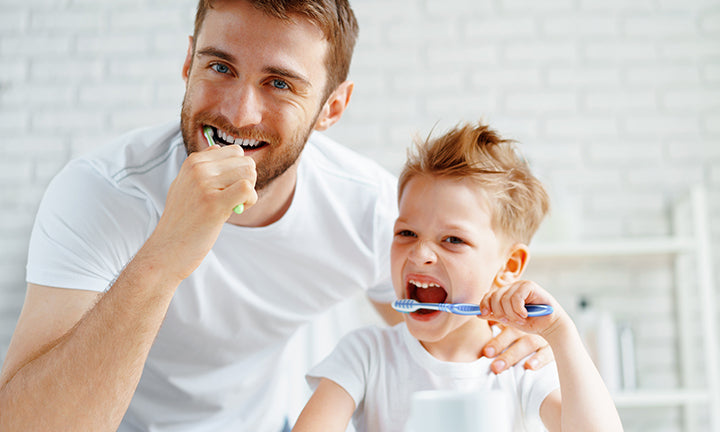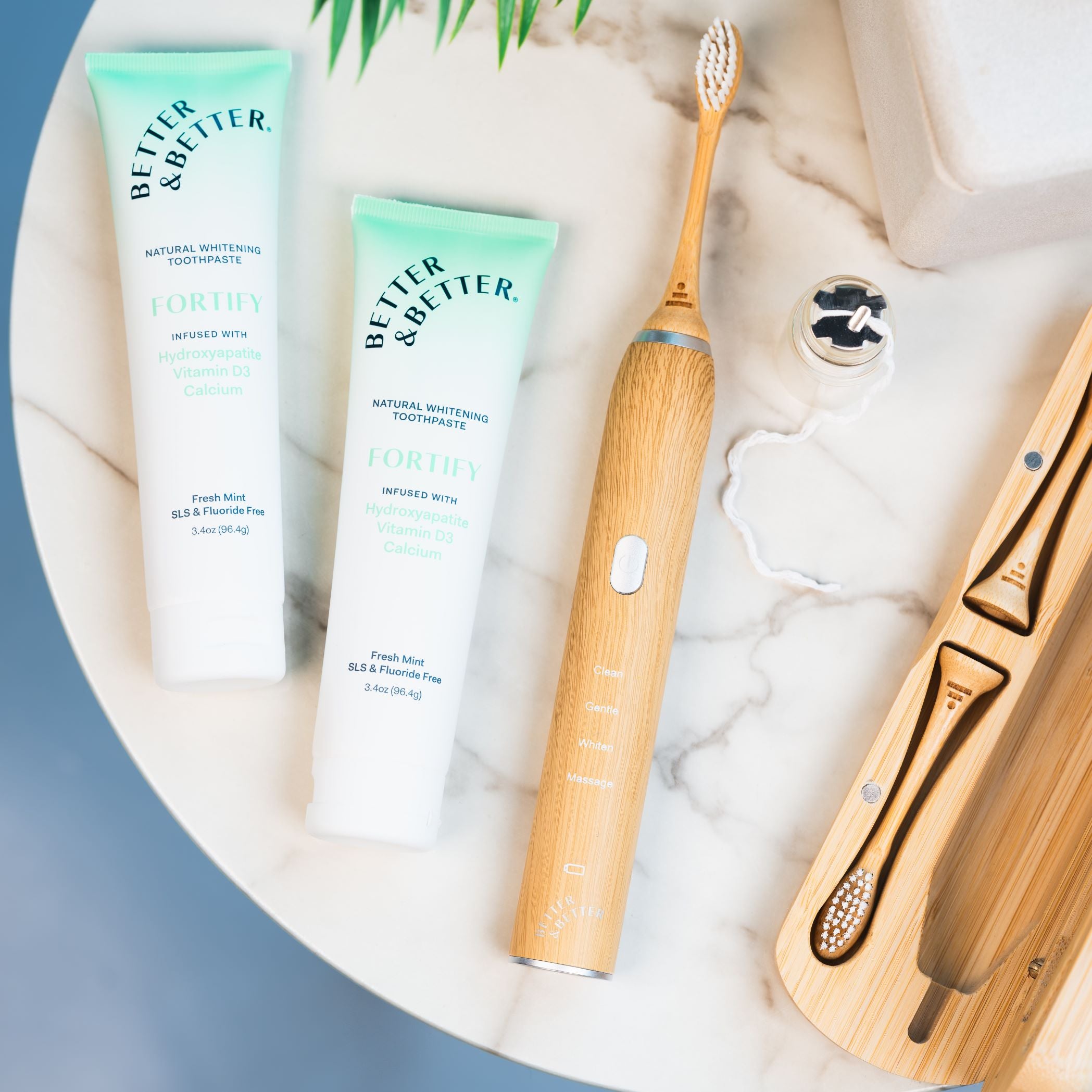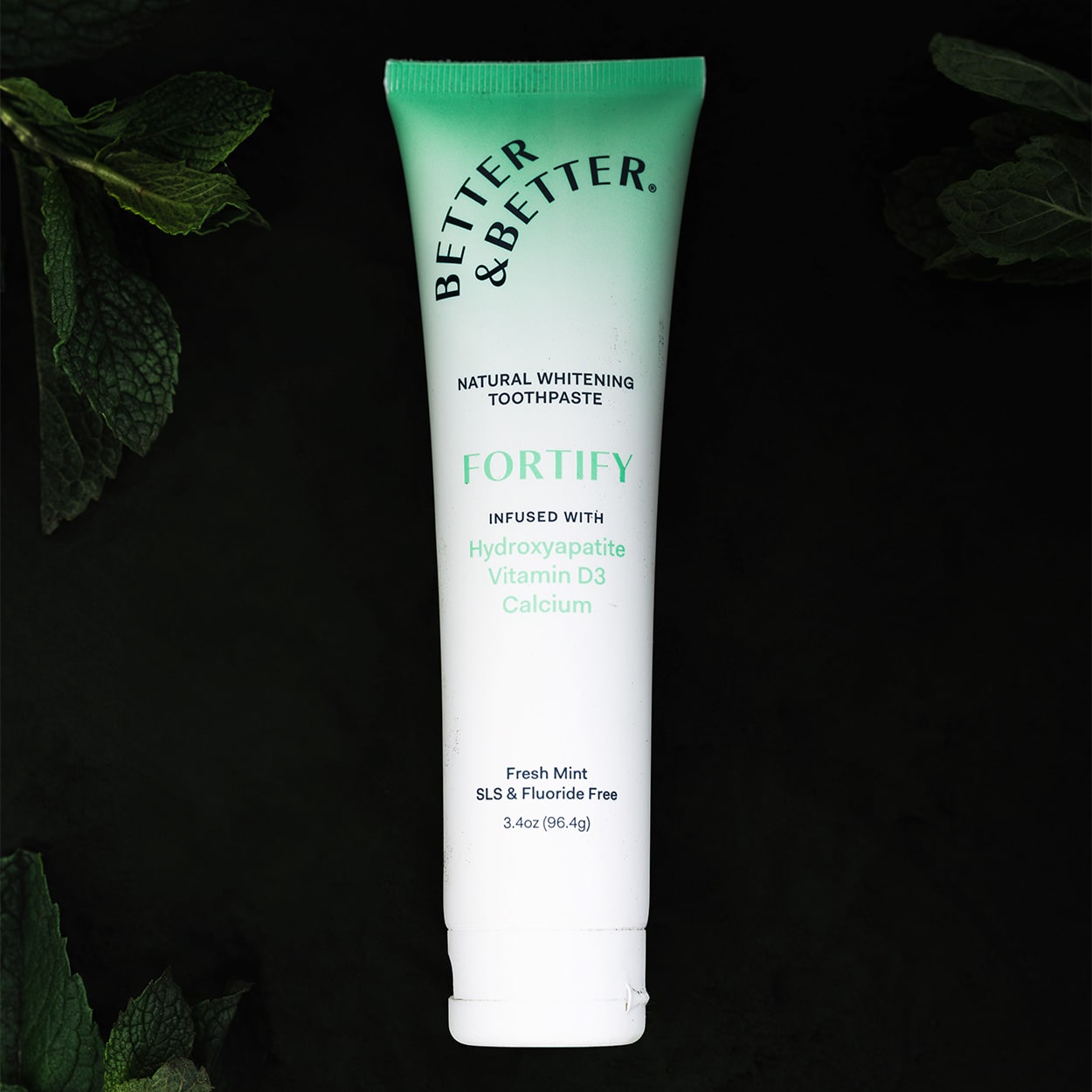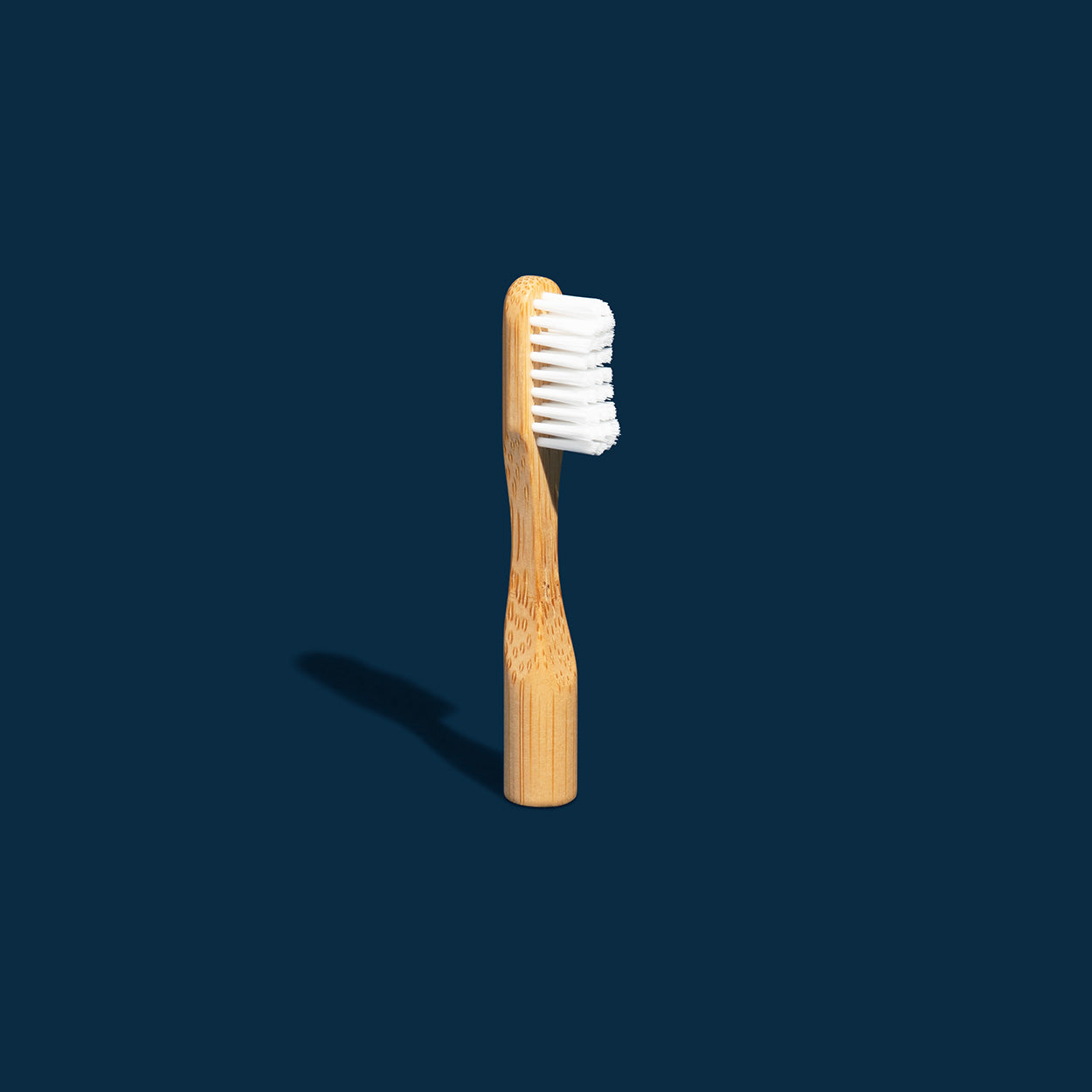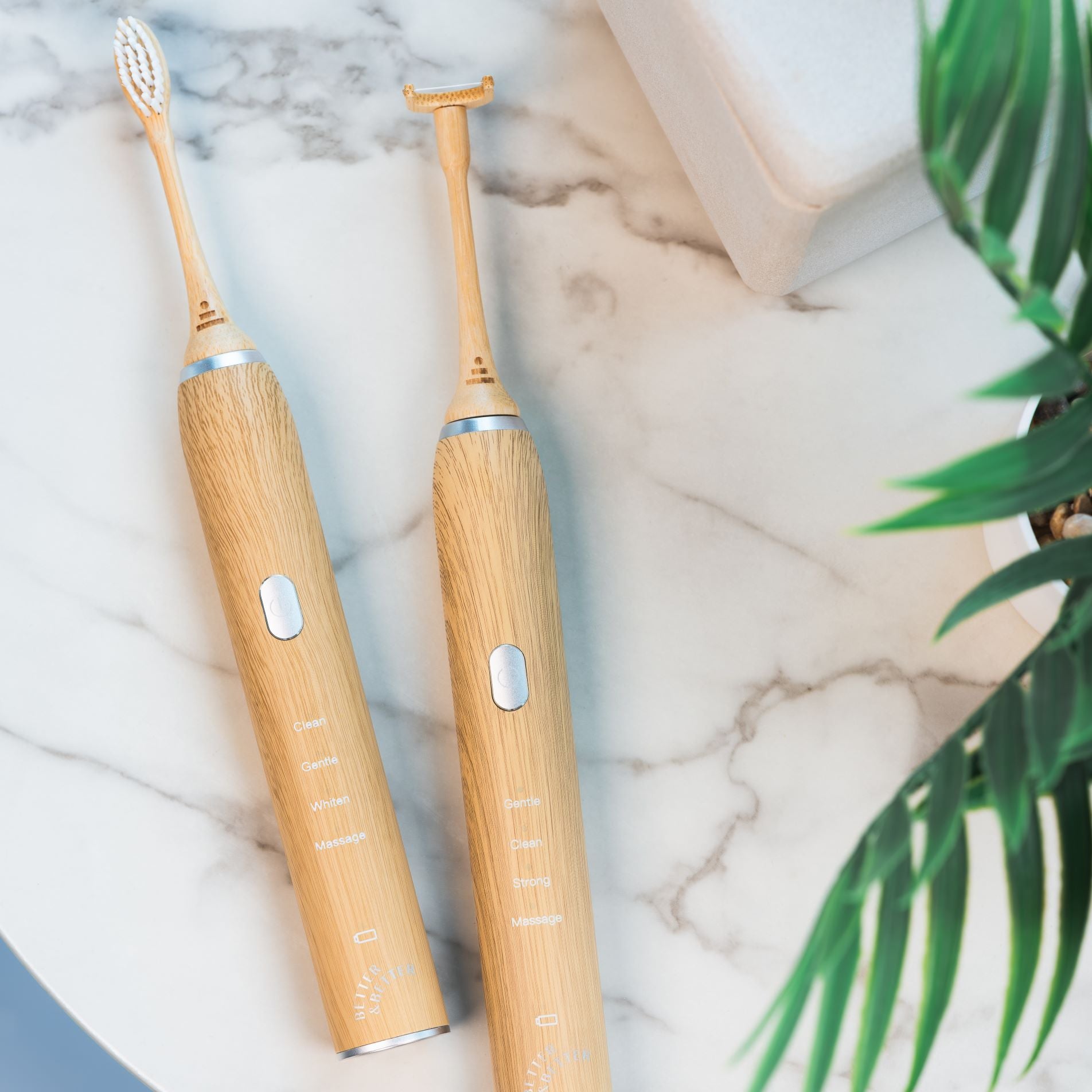The Reverie
3 Reasons Xylitol Is Good For Your Teeth (and How to Use It)
You’ve been told to stay away from sweets to protect your pearly whites. But this natural sweetener prevents cavities, remineralizes your teeth, and regulates your oral pH.
Learn moreShould You Brush Your Teeth Before or After Drinking Coffee?
In a habit of brushing your teeth right after your morning coffee? You might be doing more harm than good. Here’s how to sync up your oral care routine with your coffee routine.
Learn moreHow to Brush After Getting Your Wisdom Teeth Removed: An Oral Surgeon Explains
Dr. Jaclyn Tomsic, MD, DMD, FACS, is a board-certified Oral and maxillofacial surgeon (OMF) based out of Cleveland, OH. OMF involves extensive dental and medical education and training to achieve surgical expertise and an unparalleled understanding of esthetics.
Learn moreSonic vs. Electric Toothbrushes: 4 Key Differences, Explained
About 41% of adults opt for an electric toothbrush over a manual one. But there’s a special type of electric toothbrush that blows the competition out of the water: sonic toothbrushes. Learn why these super-powered gadgets are a dentist’s delight.
Learn moreToothpaste Allergies: All the Symptoms and Causes You Need to Know Before You Brush
From foaming agents to fake flavors, there are all kinds of potential allergens lurking in your toothpaste. Here are some symptoms to look out for and how to find relief.
Learn moreIs Sparkling Water Bad for Your Teeth? We Settled the Debate
Is opting for sparkling over still a bad choice for your teeth? We studied the data to see how carbonated water affects your pearly whites.
Learn moreIs Mouthwash Bad for Your Mouth? Dr. Jacci’s Take
Is mouthwash a part of your oral routine? It may being doing more harm than good.
Learn moreDr. Jacci’s Tips for Staying Healthy for the Holidays
It can be hard to avoid germs and stay healthy when traveling and spending time with family over the holidays. Some ways I recommend for boosting your immune system and keeping yourself and loved ones safe are getting your annual flu shot, as well as balancing holiday food with healthy food, and taking your daily vitamins. Incorporating exercise into all the holiday family fun will also help boost your immune system! Schedule Your Annual Flu Shot Getting your annual flu shot should be at the top of your list when protecting your immune system from viruses this cold and flu season. There are around a billion cases of seasonal influenza annually, and as Covid continues to circulate after the pandemic, it is best to be proactive and get you and your family vaccinated. As the flu shot reduces morbidity and mortality, high risk individuals, such as the elderly and those with diabetes and pre-existing health issues, should consider getting vaccinated more than their counterparts. It’s not too late to receive a flu shot. Cold and flu season is fast accelerating as the holidays and colder months approach, and being prepared with your flu shot is the best way to protect you and your family from illnesses. Balance decadent holiday foods with healthier options: Indulge during the holidays! Whichever holiday you celebrate, food is a way to connect with those we love and share our love with them. Everyone gathers to eat homemade food and talk about good times and memories, so make sure you let yourself revel in it all. However, you can balance decadent holiday foods with healthier options by opting for the fruit and vegetables rather than mac and cheese, for example. Holiday party invites are circulating from friends and family, as well as for office parties, and there will surely be food and cocktails at these events. If you decide to attend them all, perhaps only indulge at some of them and not all of them, or drink plenty of water in between cocktails.There's nothing wrong with treating yourself! Take Your Vitamins Daily Vitamins will also protect your immune system against illnesses this season, and build up resistance to infections that may enter your body. As a doctor, I like to make sure my patients know that there are other ways to take vitamins besides swallowing a pill — and they can be even more effective. Liquid vitamins can reach your bloodstream faster and be used more efficiently by your body. One way to get liquid vitamins is through a spray — like Better & Better’s new Balance Oral Spray. As a surgeon and an oral care practitioner, I like this prebiotic spray because it’s great for your mouth and your whole body heath. With a few sprays per day, it restores balance to your oral microbiome, and fuels your body with a daily dose of six key vitamins and minerals. The vitamin-packed spray balances your oral microbiome, fighting dry mouth, balancing your oral pH, and protecting against cavities, canker sores, and gum disease. It also freshens breath while you’re on the go throughout the day. In the spray, the six key vitamins and minerals include a combination of vitamins C, D3, E, B6, B12 and zinc, as well as xylitol and oral prebiotics. Make Exercise Part of Your Family Fun Lastly, it's difficult to maintain your fitness routine while the kids are out of school for holiday break, and kids, too, aren't exercising as much as they might be at school. If you’re away from home, too, it can be hard to maintain the regimen you work so hard to keep. You can do home workouts instead by looking them up online or by using an app. With these workouts, you don’t need a program or gym — all you need is your body to move around at families’ houses, or wherever you’re traveling to. Getting the kids involved in exercises could include going outside to engage in snowboarding or sledding, or simply going on a nature walk to look at decorations and play in the snow. If you work remotely, then you probably know how hard it can be to incorporate a fitness regimen, whether it's the holidays or not. Again, using an app or home workout video on your lunch break or in between work is a great way to keep up a routine. If the kids are home while you're working remotely, get them involved in your workout and make it a game to see who can demonstrate the best pose or finish first! The holidays are a time to spend with family and friends, but it's also a time when illnesses are taking their course. That's why it is best to defend yourself by getting your flu shot while also maintaining a healthy diet and exercise routine. Getting your daily dose of vitamins to protect your immune system is critical, and can be as easy as spraying a vitamin spray, like Better & Better’s Balance, throughout the day. And remember: with all those parties you’ll be attending, there will be many opportunities to indulge, so do it! Just me sure to take care of yourself as well. Dr. Jaclyn Tomsic, MD, DMD, FACS, is a board-certified Oral and maxillofacial surgeon (OMF) based out of Cleveland, OH. OMF involves extensive dental and medical education and training to achieve surgical expertise and an unparalleled understanding of esthetics.
Learn moreDental Probiotics: How They Work, 6 Benefits, and How to Take Them
When you see the word “probiotics,” you probably think of gut health and yogurt commercials. But over the past decade, researchers have discovered certain strains of probiotics that specifically benefit your oral health. The inside of your mouth is home to millions of bacteria and other microorganisms that make up your oral microbiome. If your ratio of good bacteria to bad bacteria gets thrown off, it can lead to all sorts of oral health issues. That’s where dental probiotics come in. Dental probiotics (also called oral probiotics) are living microbes that stabilize your oral microbiome. Research shows they can prevent cavities, fight gum disease, and even freshen your breath—more on that soon. In this article, you’ll learn what dental probiotics are, how they benefit your oral health, and how to incorporate them into your routine. What Are Dental Probiotics? Dental probiotics are living microbes that stimulate the growth of good bacteria in your mouth while suppressing bad bacteria. In contrast to probiotics for your gut, dental probiotics thrive in your oral cavity, which requires specific bacterial strains to stay healthy. Most dental probiotics are bacteria, but they can also be molds or yeasts. That might sound gross, but without these microbes, your mouth would be a mess. Dental probiotics are found naturally in fermented foods such as yogurt, kefir, kimchi, and kombucha. They can also come in the form of supplements including powders, liquids, gels, and capsules. Dental Probiotics vs. Dental Prebiotics: What’s the Difference? In addition to dental probiotics, your oral microbiome also needs dental prebiotics. You can think of prebiotics as “food” that probiotics feed on to stay alive and thriving. By providing fuel for probiotics, dental prebiotics stimulate the growth and activity of beneficial bacteria in your oral microbiome. The most common sources of dental prebiotics are carbohydrates (primarily non-digestible fiber) from fruits, vegetables, beans, and whole grains. Consuming balanced amounts of both probiotics and prebiotics ensures that you maintain the right balance of these bacteria to keep your oral microbiota healthy. 6 Benefits of Dental Probiotics Over the past decade, scientists have conducted groundbreaking research into the oral health benefits of dental probiotics. Let’s take a look at six reasons why these microorganisms have a huge impact on your dental health. 1. Fix Bad Breath Probiotics can be used to treat bad breath (halitosis), which is caused by sulfur-producing bacteria that live on your tongue and inside your throat. A study in the Journal of Applied Microbiology found “significant reductions in volatile sulfur compounds” for people with halitosis who used the probiotic Streptococcus salivarius, compared to a placebo group. 2. Prevent Cavities The main cause of cavities (canaries) is dental plaque: a sticky film of bacteria that forms on your teeth and turns into tartar. Several studies suggest that consuming dental probiotics can reduce the amount of cavity-causing bacteria in your saliva. Specifically, Lactobacillus paracasei SD1 has promising potential to slow the progression of cavities and help remineralize incipient caries. 3. Treat Gingivitis and Periodontal Disease Probiotics are quickly becoming a go-to treatment option for periodontal disease and gingivitis, both of which stem from unhealthy bacteria in the mouth. In one early study, Patients with various periodontal diseases, gingivitis, periodontitis, and pregnancy gingivitis, were treated with a probiotic strain called L. acidophilus. Almost every patient achieved significant recovery. In more recent studies, probiotic strains were shown to improve gingival health by reducing plaque along the gum line, reducing bleeding, and reducing pocket depth. 4. Prevent Oral Thrush Oral thrush is a condition where white spots develop on your tongue due to an overgrowth of Candida, a strain of fungi. A 2017 study found that the patients who ate cheese containing the probiotic L. rhammnosus GG reduced their levels of oral Candida, which subsequently protects against oral thrush. 5. Prevent Plaque Buildup There are a few ways dental probiotics prevent plaque buildup: Dental probiotics occupy the surface where plaque-causing bacteria would otherwise thrive, limiting their ability to establish themselves. Dental probiotics actively inhibit the growth and activity of harmful bacteria. Dental probiotics regulate the pH levels in your mouth, creating conditions that are less favorable for plaque to form. Plaque is a biofilm—a slimy layer of bacteria that sticks to surfaces. Dental probiotics slow the formation of this biofilm, making it harder for plaque to accumulate on your teeth. 6. May Reduce the Risk of Oral Cancers To date, there isn’t enough human evidence to suggest that dental probiotics can prevent cancer. However, a 2020 review of multiple animal studies observed that probiotics—specifically L. salivarius REN—slow the progression of oral cancer. Do Dental Probiotics Really Work? There are decades of evidence to suggest that probiotic bacteria improve your dental health. However, more long-term clinical trials are needed to determine whether dental probiotics are a proven means to treat and prevent oral diseases. “Several health-promoting effects of probiotic bacteria are well documented, and there is no reason to restrict the use of probiotic products because their effects on oral health are not yet well understood,” says Anna Haukioja in the European Journal of Dentistry. What’s the Link Between Your Oral Microbiome and Your Gut Microbiome? Your oral microbiome and gut microbiome are a dynamic duo that works together in fascinating ways. Here are just a few examples: Swallowing and Traveling: Some of the bacteria in your mouth end up in your stomach through the process of swallowing. So, whatever's happening in your oral microbiome can influence what's going on in your gut. Immune System Cross-Talk: When your immune system encounters microbes in the mouth or gut, it learns to recognize them. Accordingly, the health of one microbiome can influence the immune response in the other. Digestive Health: Your oral and gut microbiomes both play roles in digestion. For example, some bacteria in your mouth start breaking down food, and the byproducts of this process can affect the environment in your gut. Disease Connections: Imbalances in one microbiome can contribute to issues in the other. For example, certain oral bacteria have been linked to conditions like inflammatory bowel disease (IBD) and rheumatoid arthritis. How to Add Dental Probiotics to Your Routine The best way to stay on top of your oral hygiene is to brush your teeth twice daily, floss daily, and go in for dental check-ups twice a year. Once you have those basics covered, you can focus on working dental probiotics into your routine. The most efficient way to increase your intake of dental probiotics is through dietary supplements. Dental probiotics come in the form of chewable tablets, capsules, gummies, lozenges, and powders. You can also increase the presence of probiotics in your oral microbiome by eating these probiotic-rich foods: Cultured cottage cheese Kombucha (a fermented tea) Dark chocolate Sauerkraut Cheeses, especially soft cheeses Miso Almond butter Pickled cucumbers or other fermented vegetables Probiotic milk Sourdough bread Mangos Yogurt Kefir (a fermented milk drink) There you have it—so many of us grew up trying to avoid the wrong foods for our teeth. But as you can see, it’s also important to embrace the right foods to stay on top of your oral health. Note: If you purchase on Amazon by clicking a link on this website, we may receive commission.
Learn more

